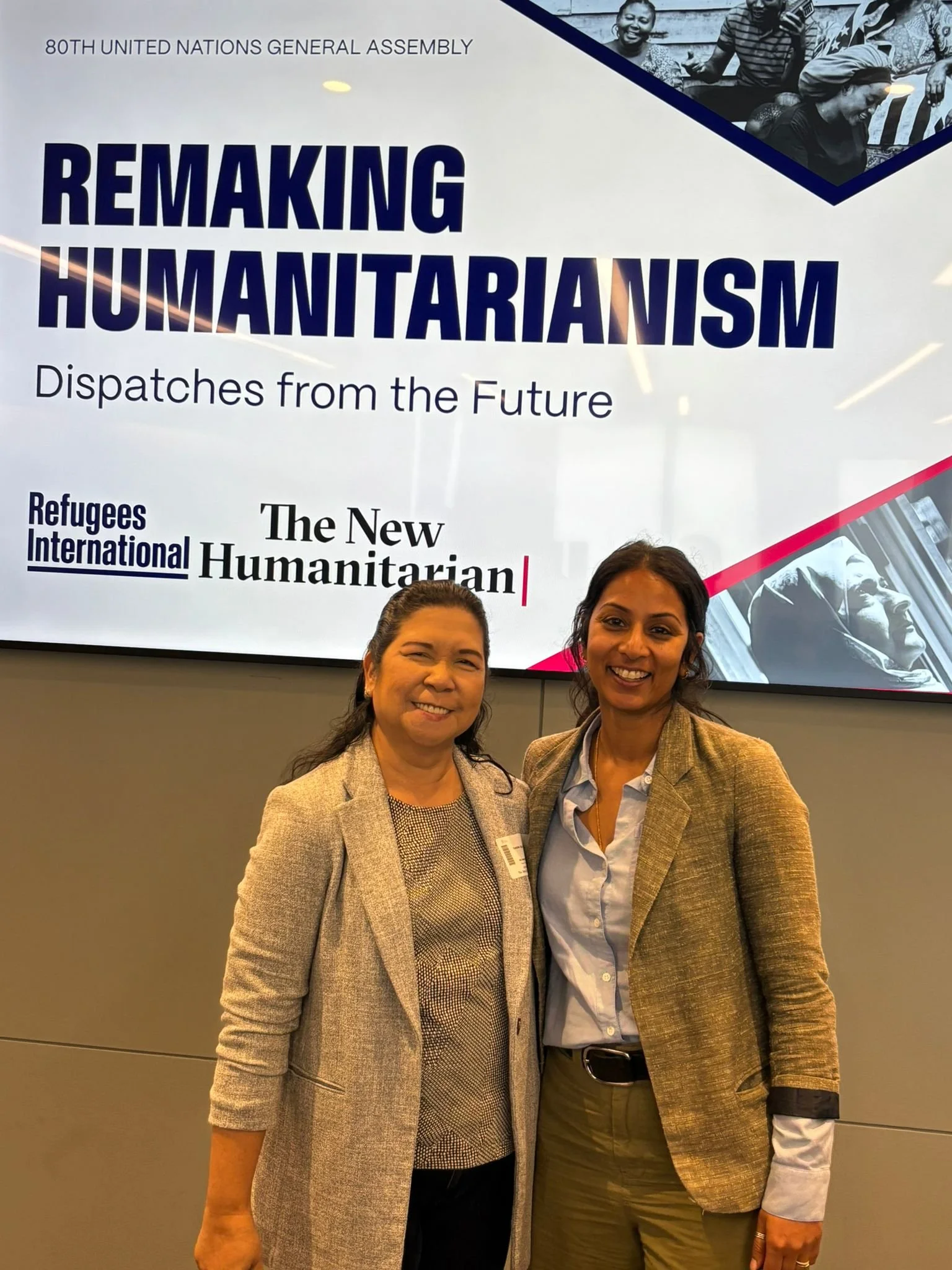NEAR at UNGA 2025
by Anita Kattakuzhy, Director of Policy at NEAR
New York in September is always a whirlwind. Convoys, barricades, the crush of institutional bureaucracy – and alongside it, a thousand parallel gatherings where civil society, foundations, and governments all try to capture some of the attention swirling around the UN. UNGA is crowded and chaotic, but it is also a chance to test ideas, meet allies, and take the temperature of the system.
This year, what stood out was the gap between the language of reform and the practice of it. In the High-Level events focused on humanitarian action, the rhetoric was ambitious: solidarity, local leadership, even a shift from speaking of a “humanitarian community” to a “humanitarian movement.” Yet the panels were dominated by UN and INGO leaders, and the proposals leaned heavily on UN-led coordination and pooled funds. Progress in words, perhaps, but the reality of who holds the mic and practice – on a wide scale – has not shifted.
UN80 conversations were no clearer. Lofty talk of inclusion, stability, efficiency floated around, but again and again attention circled back to succession politics. With Guterres due to leave in 2026, the question of who comes next has already become the gravitational pull of reform. The risk is obvious: reform recentralised in New York, tied to personalities rather than structural change. Yet there is also opportunity: political attention is high, and that creates openings for more ambitious alternatives to break through.
PHOTO CAPTION: Loreine Dela Cruz and Anita Kattakuzhy at UNGA
Against this backdrop, NEAR came to New York with a different energy. We didn’t chase headlines, we positioned ideas. We tested bold concepts with funders and allies, we co-hosted conversations on power and responsibility, and we brought Global South leadership into the conversation.
At The New Humanitarian and Refugees International panel and CALP’s “Direct by Default” cash event, NEAR Delegate Loreine Dela Cruz insisted that local civil society leaders are not case studies but agenda-setters, shaping the system rather than being shaped by it.
And throughout the week, a new phrase floated into donor conversations: “donor reset.” Still undefined, still contested - but an opportunity for NEAR, nonetheless. If it is to mean anything, we must ensure it signals genuine change: co-governed finance that shifts both resources and risk, able to strengthen, not undermine, local leadership (like the NFM!).
For NEAR, this UNGA was a reminder of why we show up. To push past rhetoric and demonstrate that distributed leadership – locally governed models – are not only possible, but urgent. To remind system leaders that solidarity is not a slogan but a practice. And to ensure that as the aid system debates its future, the Global South is not spoken for, but speaks for itself.


